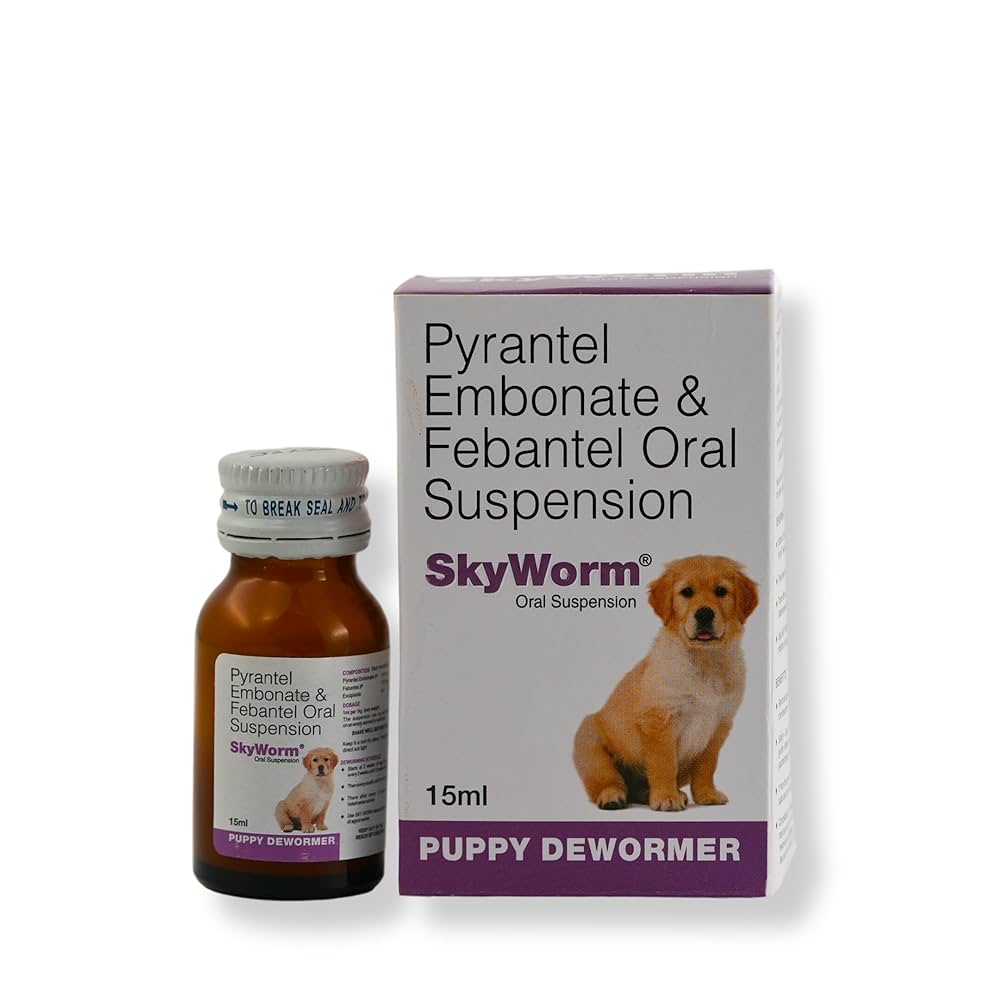The Importance of Regular Deworming for Dogs and Cats Health

Understanding the Need for Regular Deworming
Pets are beloved members of our families, yet their health can often be overlooked. One crucial aspect of maintaining their well-being is regular deworming, an essential practice for both dogs and cats. Understanding why this routine is necessary can help pet owners ensure a healthier life for their furry companions.
Widespread Threats
- Internal parasites can affect any pet, regardless of age or breed.
- Common types of worms include roundworms, tapeworms, and hookworms.
- Statistics show that a significant percentage of pets may harbor these parasites without visible symptoms.
For example, studies indicate that approximately one in three dogs may be infected with roundworms, often contracted through contact with contaminated soil or feces. This is not just a hidden threat; infected pets can exhibit unnoticeable health problems like vomiting or lethargy, even though they may appear lively. Serious cases can lead to significant health complications and increased veterinary bills.
These parasites not only affect an animal’s health but can also pose risks to humans. Infections such as toxocariasis, caused by roundworms, can lead to serious issues in children. Regular deworming helps prevent serious health issues, such as:
- Malnutrition and weight loss
- Diarrhea and gastrointestinal discomfort
- Respiratory problems in cases of severe infections
Simple Prevention
Puppies and kittens are especially vulnerable. They can be at risk of parasite ingestion from nursing or playing in contaminated environments. Therefore, it is vital to start deworming at an early age; many veterinarians recommend initiating a deworming schedule at around two weeks of age. This proactive approach is crucial as it helps to minimize the chances of heavier infections later in life.
In the United States, various deworming products are available that target specific parasites. It’s essential for pet owners to consult with their veterinarians to develop an appropriate deworming routine tailored to their pet’s needs. By including deworming as part of your pet’s health program, you can enhance their quality of life by preventing potential health issues that parasites may cause.


In conclusion, regular deworming is not merely an option but a vital necessity for pet owners looking to provide their animals with the best care possible. Consider this routine as an investment in your pet’s overall health and happiness, and take the time to learn about the risks involved. Staying informed can equip you with the power to fight against these silent but serious threats.
SEE ALSO: Click here to read another article
The Impact of Parasites on Pet Health
Parasites are not merely an inconvenience—they are a serious health threat that can disrupt the lives of our dogs and cats. Understanding the impact of these internal parasites is vital for responsible pet ownership. The most common parasites that affect pets include roundworms, hookworms, and tapeworms, and they can lead to various health complications if not addressed.
The lifecycle of these worms is often sneaky, allowing them to go undetected in your pet until substantial damage has occurred. For instance, roundworms, which are particularly common in puppies and kittens, can grow several inches in length and ultimately inhabit the intestines, where they consume your pet’s nutrients. This can result in serious health issues such as:
- Stunted growth in young animals due to malnutrition.
- Severe gastrointestinal distress leading to vomiting or consistent diarrhea.
- Anemia caused by blood loss, especially with hookworm infestations.
Not only do these parasites affect the physical health of pets, but they can also lead to behavioral issues stemming from discomfort or pain. A once playful puppy can turn lethargic and reluctant to engage, which can further complicate their socialization and overall happiness.
Furthermore, the implications of a parasitic infection extend beyond the furry friend. Some of these parasites have the potential to infect humans, particularly young children or individuals with compromised immune systems. For example, toxocariasis, linked to roundworm infections, can cause serious health problems in humans, including inflammation of the eye and vision loss. Through direct or indirect contact with contaminated pet feces, the risk of transmission increases significantly.
Given these potential health threats, pet owners must remain vigilant and proactive. Many veterinary professionals advocate for regular deworming as part of a comprehensive health care routine. By preventing and treating parasitic infections, pet owners can safeguard not only their pets but also their families.
In the quest for optimal pet health, knowledge is the first step. Recognizing the signs of possible infestations is crucial. Pets may show subtle symptoms like:
- Changes in appetite
- Unexplained weight loss
- Bloated abdomen or pot-bellied appearance
Awareness of these indicators allows for timely veterinary intervention, which is often the key to successful treatment. It is important to remember that preventive measures, such as a detailed deworming schedule, can significantly reduce the likelihood of dealing with a full-blown infestation.
Ultimately, keeping pets healthy begins with understanding the threats they face. Regular deworming, combined with thorough education, is the foundation of a healthy life for your furry companions, protecting them from dangers that lurk unnoticed.
| Advantage | Details |
|---|---|
| Enhanced Health | Regular deworming helps maintain your pet’s optimal health by preventing parasitic infections that can lead to serious health issues. |
| Improved Quality of Life | By controlling infestations, pets experience better energy levels and overall well-being, making for a happier companion. |
When considering pet care, the significance of regular deworming cannot be overstated. It’s not merely about maintaining appearances; it’s about protecting your furry friends from serious health complications. Deworming eliminates harmful parasites that can cause gastrointestinal distress, malnutrition, and even more severe health problems if left untreated. For instance, roundworms and tapeworms can compromise your pet’s ability to absorb nutrients, leading to weight loss and lethargy.Moreover, did you know that some parasites can pose risks to humans as well? Contagious zoonotic parasites like Toxocara canis can affect humans, especially children, emphasizing the need for a proactive approach to your pet’s health. Regular veterinary check-ups that incorporate deworming treatments are not only a recommendation but a pivotal aspect of responsible pet ownership.Furthermore, establishing a deworming schedule lays the groundwork for long-term health benefits. Best practices often suggest routine deworming every 3-6 months, depending on lifestyle and exposure. This routine ensures that your pets can enjoy their lives in a safe, healthy environment free from the burdens of parasitic infections. Be proactive—invest in your pet’s health today!
CHECK OUT: Click here to explore more
Implementing an Effective Deworming Schedule
To effectively combat the myriad of health threats posed by parasites, pet owners must implement an effective deworming schedule. Veterinary guidelines typically recommend that puppies and kittens start deworming as early as two weeks of age, with follow-up treatments every two to three weeks until they reach around three months old. Subsequently, veterinarians often suggest transitioning to regular deworming every three to six months based on the pet’s lifestyle and risks associated with exposure to parasites.
The frequency of deworming can also depend on several factors, such as the pet’s age, health status, and geographic location. For example, pets living in warm, humid areas are at greater risk of parasitic infections due to the conducive environment for parasites to thrive. In contrast, pets that spend significant time outdoors (such as hunting dogs) may require more frequent treatments due to increased exposure. Therefore, a tailored deworming program, developed in conjunction with a veterinarian, can greatly enhance the health outcomes for our furry friends.
In addition to the prescribed deworming medications, it is essential to consider the role of regular fecal exams in detecting parasitic infections early. These tests can identify the presence of eggs, allowing for a more targeted approach to treatment. Routinely testing fecal samples can provide invaluable insight into your pet’s health and indicate whether the deworming protocol is effective.
Choosing the Right Deworming Medication
When it comes to selecting deworming medications, the options can be overwhelming. Various anthelmintics target specific types of worms, including praziquantel for tapeworms and pyrantel pamoate for roundworms and hookworms. Consulting with a veterinarian when choosing the appropriate dewormer is crucial, as improper use may lead to ineffective treatment, fostering resistance in worm populations.
Moreover, advances in veterinary medicine have seen the development of broad-spectrum dewormers effective against multiple types of worms. This approach can streamline the process for pet owners, reducing the need for multiple treatments and ensuring that all possible parasitic threats are addressed. Remember, while over-the-counter options may be available, these products are often less effective than veterinary-recommended medications.
Integrating Preventive Care
Incorporating deworming into a broader preventive care strategy is vital for maintaining pet health. Regular veterinary check-ups should include discussions about deworming, vaccinations, and flea and tick control, as these parasites can often interact and complicate treatment protocols. In some cases, fleas can serve as intermediaries, carrying tapeworm larvae that can infect pets if ingested during grooming.
Furthermore, educating pet owners about hygiene practices—including cleaning up feces promptly and regularly bathing pets—can significantly reduce the transmission of parasites. Maintaining a clean living environment, alongside routine deworming and preventive care, creates a holistic approach to protecting both pets and their human companions from the dangers of parasites.
In conclusion, understanding the complexities of parasite control and implementing an effective deworming schedule is essential for responsible pet ownership. Addressing these issues proactively not only safeguards our pets’ health but contributes to the overall well-being of the family unit. Through continued vigilance and commitment to a preventive care regimen, pet owners can ensure their furry friends live long, healthy lives free from the burdens of parasitic infections.
CHECK OUT: Click here to explore more
Conclusion
In summary, regular deworming is an essential aspect of maintaining the health and longevity of our beloved pets—dogs and cats alike. By adhering to a structured deworming schedule, pet owners not only protect their furry companions from parasitic infections but also contribute to the overall well-being of their households. The prevalence of parasites, coupled with their potential to cause significant health issues, underscores the necessity for vigilant preventive care.
Additionally, the role of veterinary guidance in choosing the right deworming medication cannot be overstated. By collaborating with veterinarians, pet owners can design tailored health plans that account for their pets’ individual needs and lifestyles. This personalized approach, combined with regular fecal testing, ensures early detection of any parasitic concerns, allowing for timely intervention. Furthermore, understanding the link between parasites, hygiene practices, and household cleanliness is vital for effective prevention.
Therefore, education is key—responsible pet owners must familiarize themselves with the various types of parasites that threaten their pets and take proactive measures to minimize risks. By integrating deworming into a broader preventive strategy that includes routine veterinary check-ups and proper hygiene, pet owners can significantly enhance their pets’ quality of life and foster a healthier family environment. Ultimately, investing time and resources in regular deworming will reap long-term benefits, ensuring that our furry friends remain vibrant, energetic, and free from the burden of parasites.


